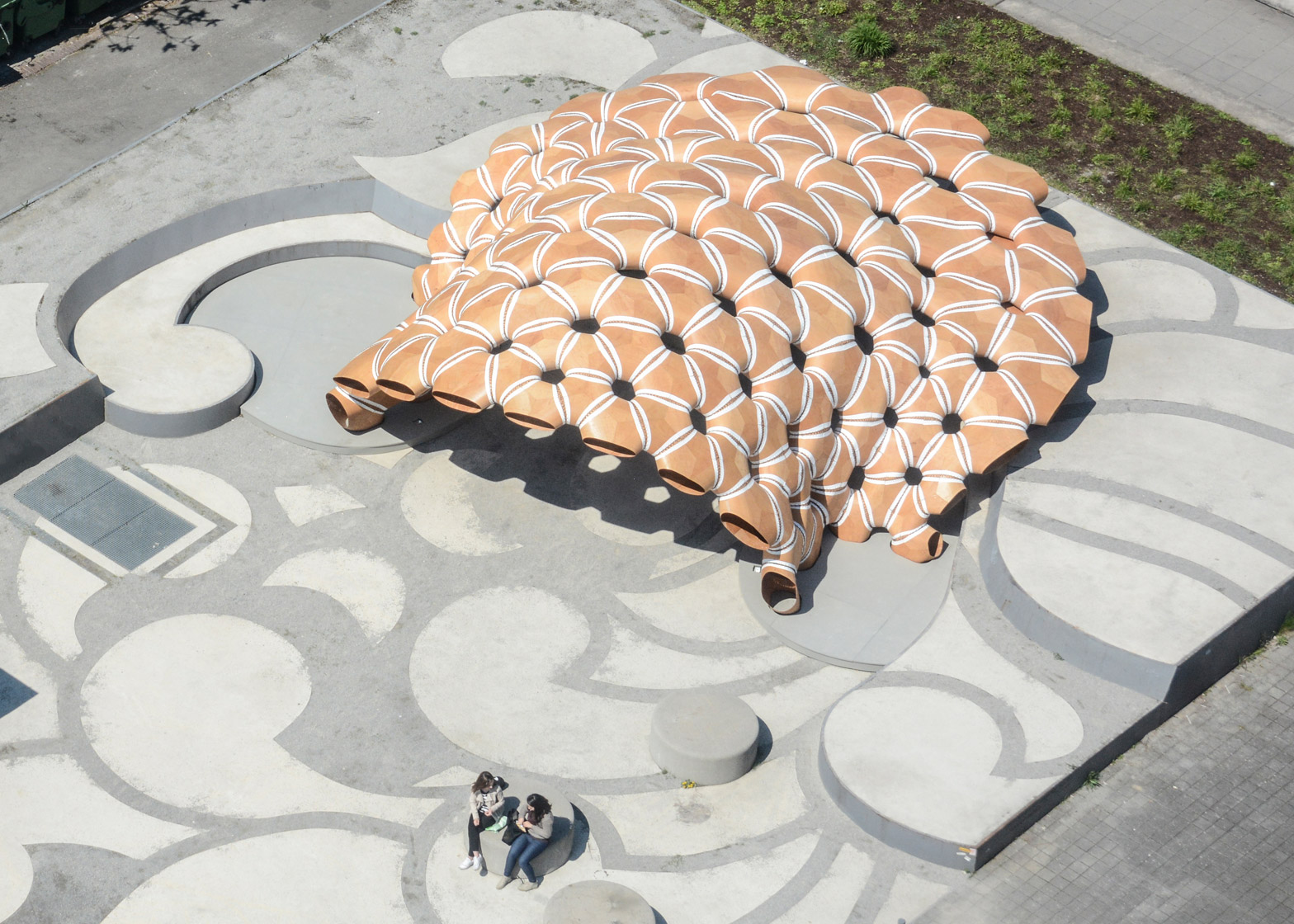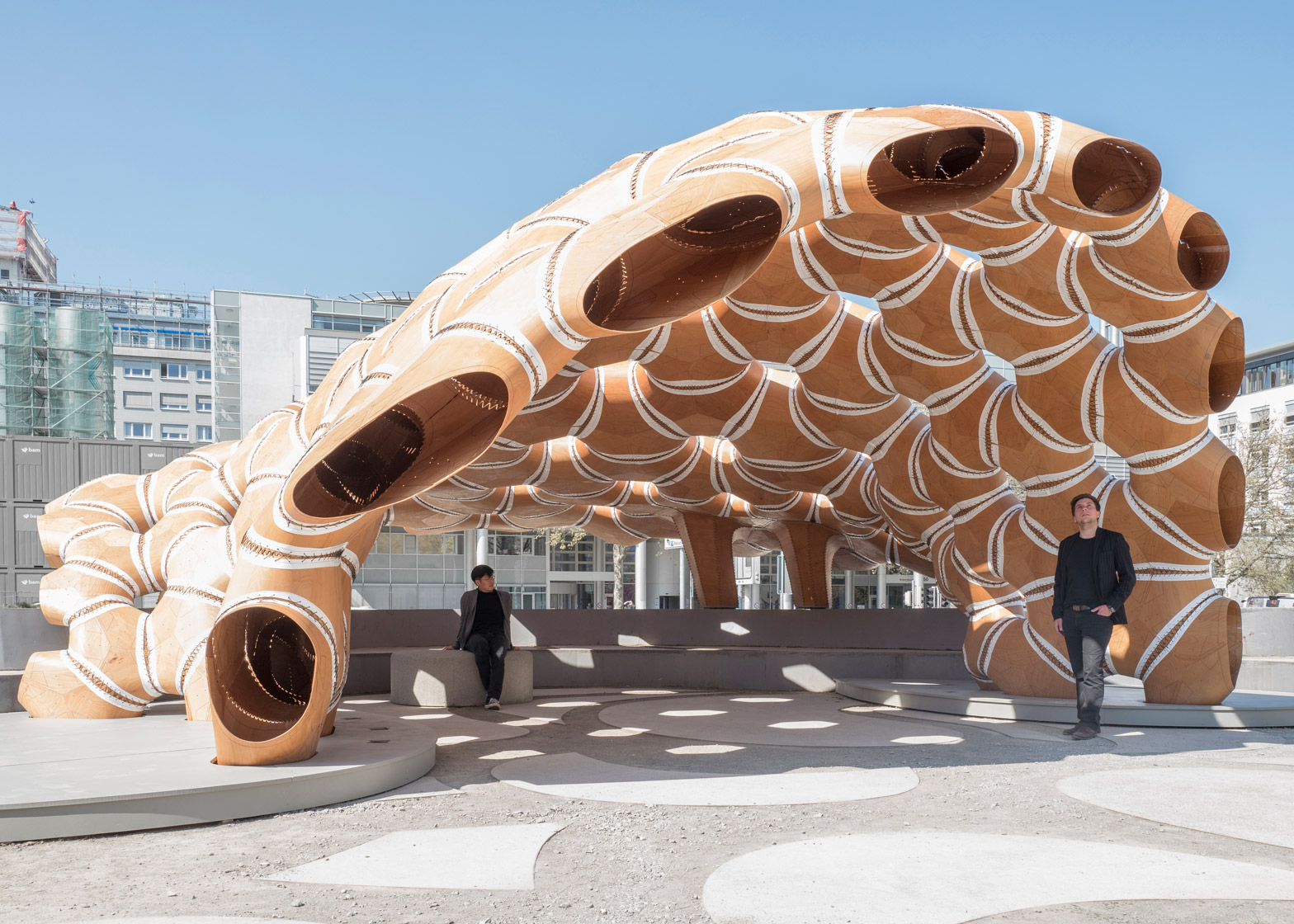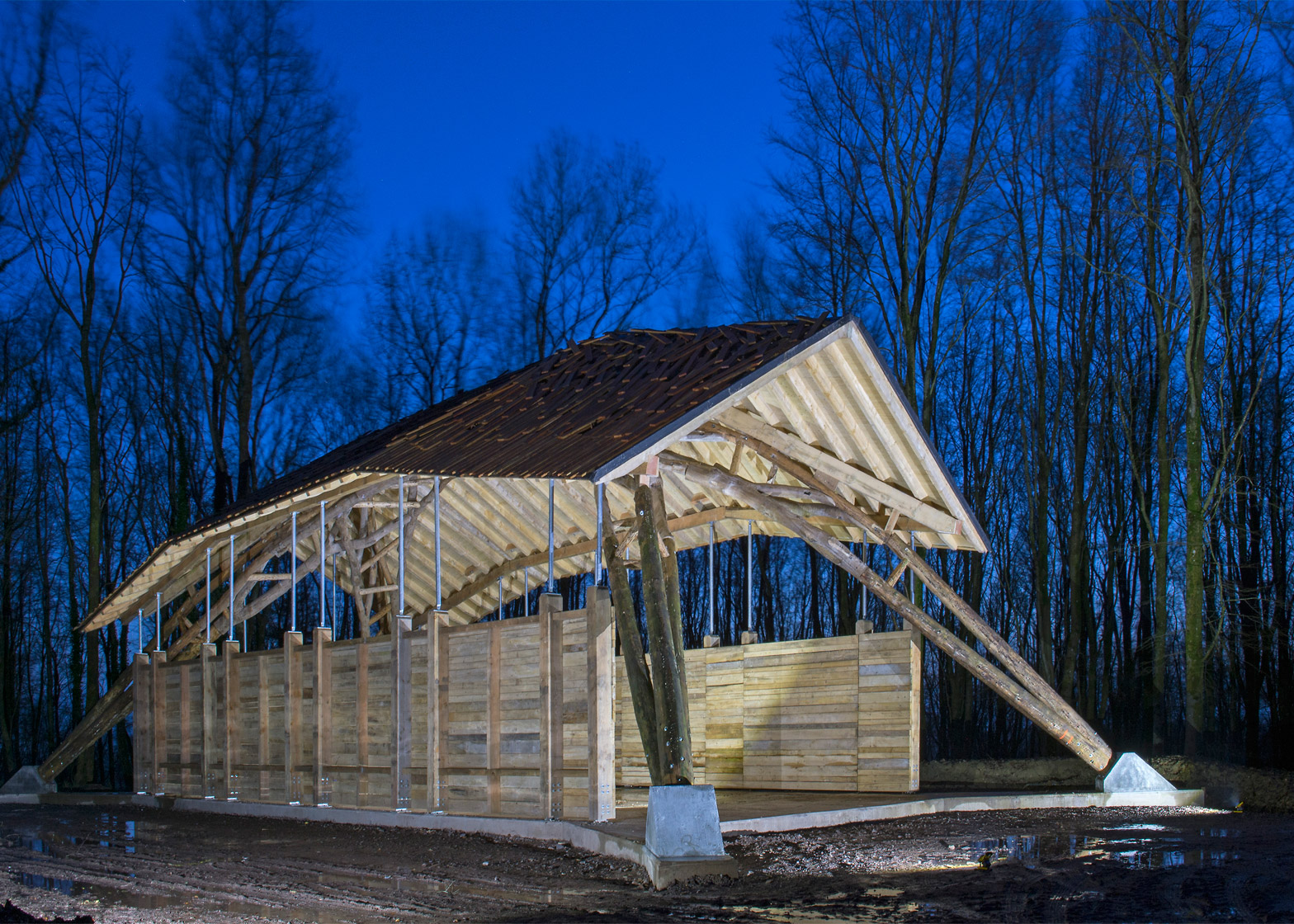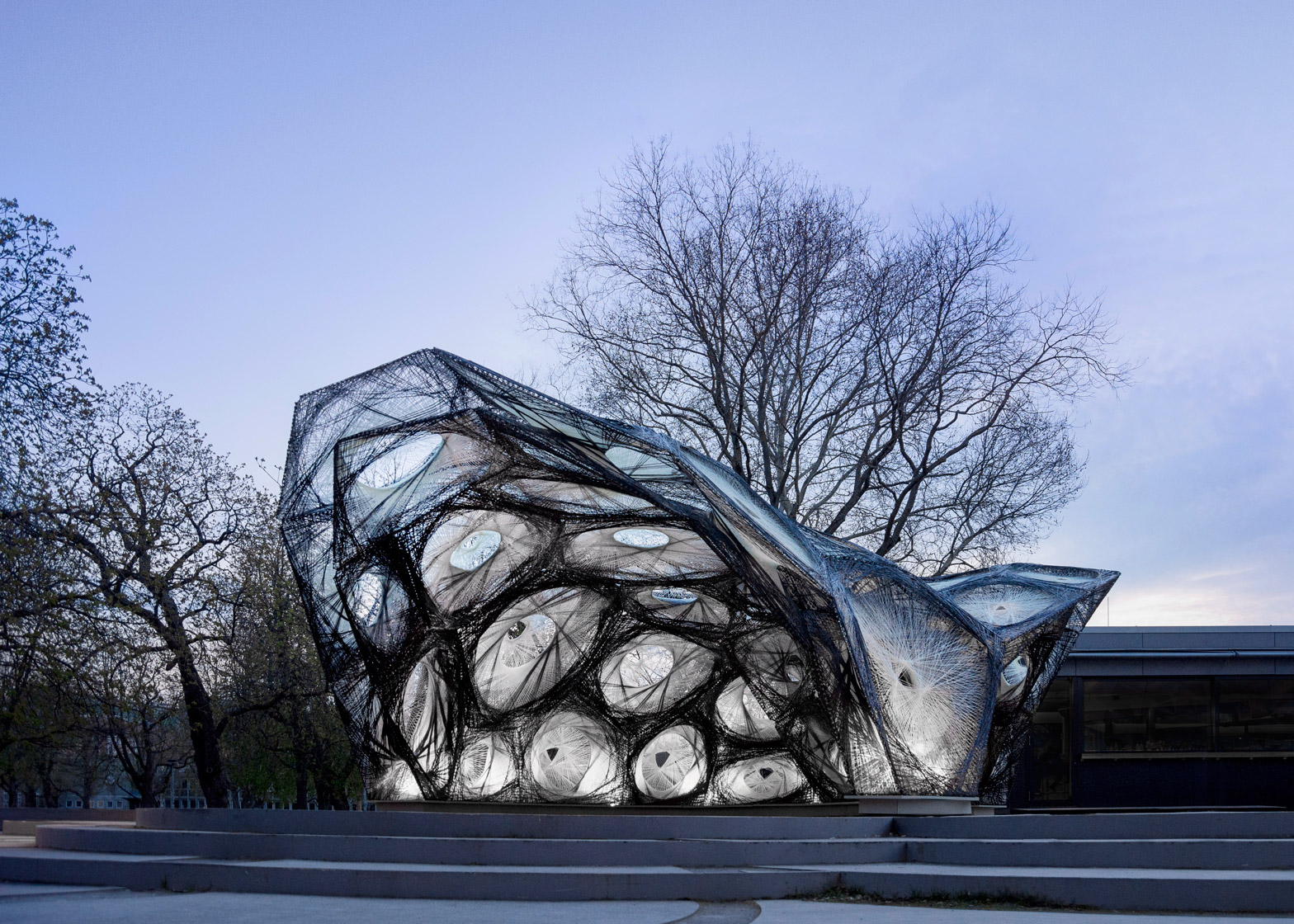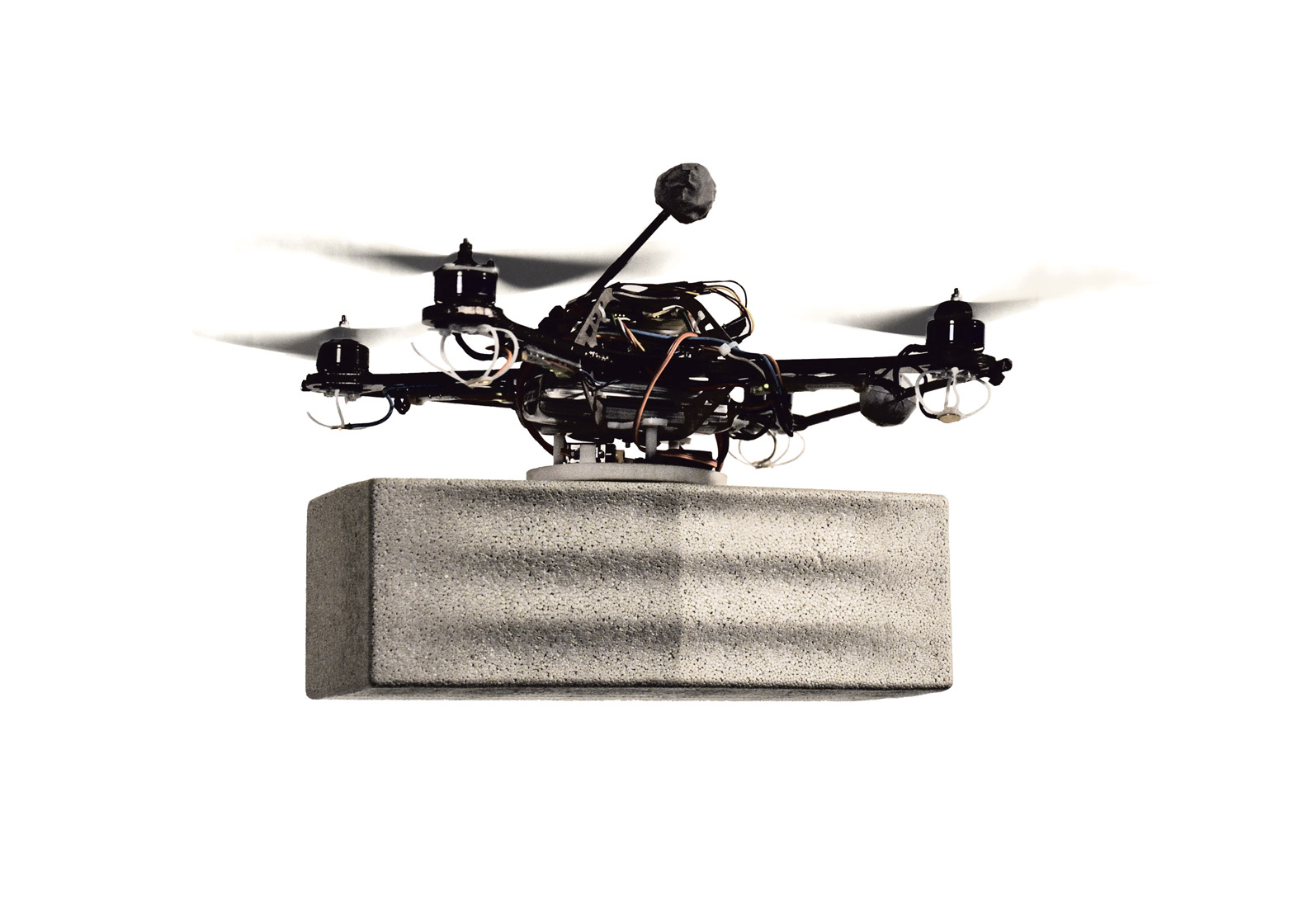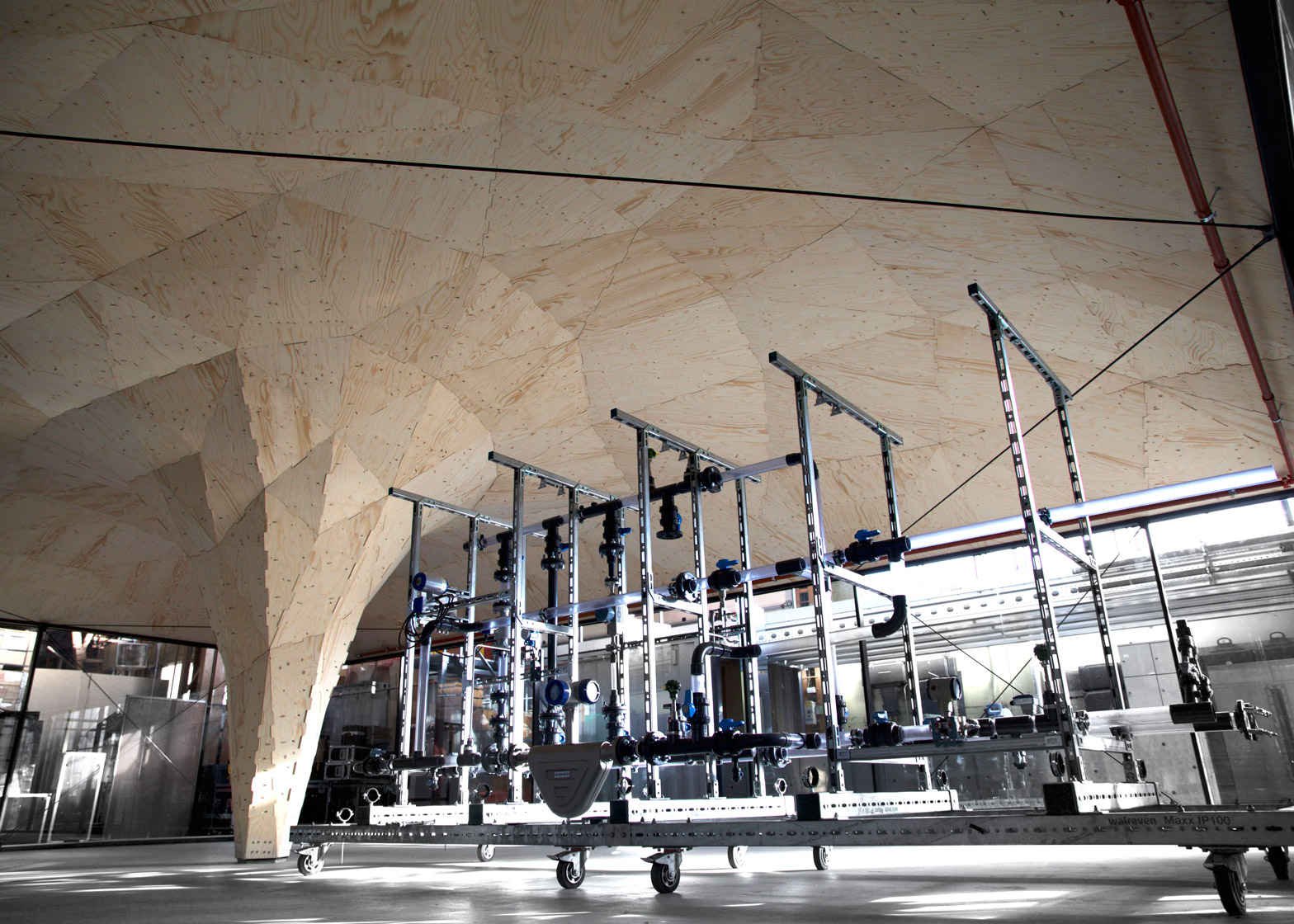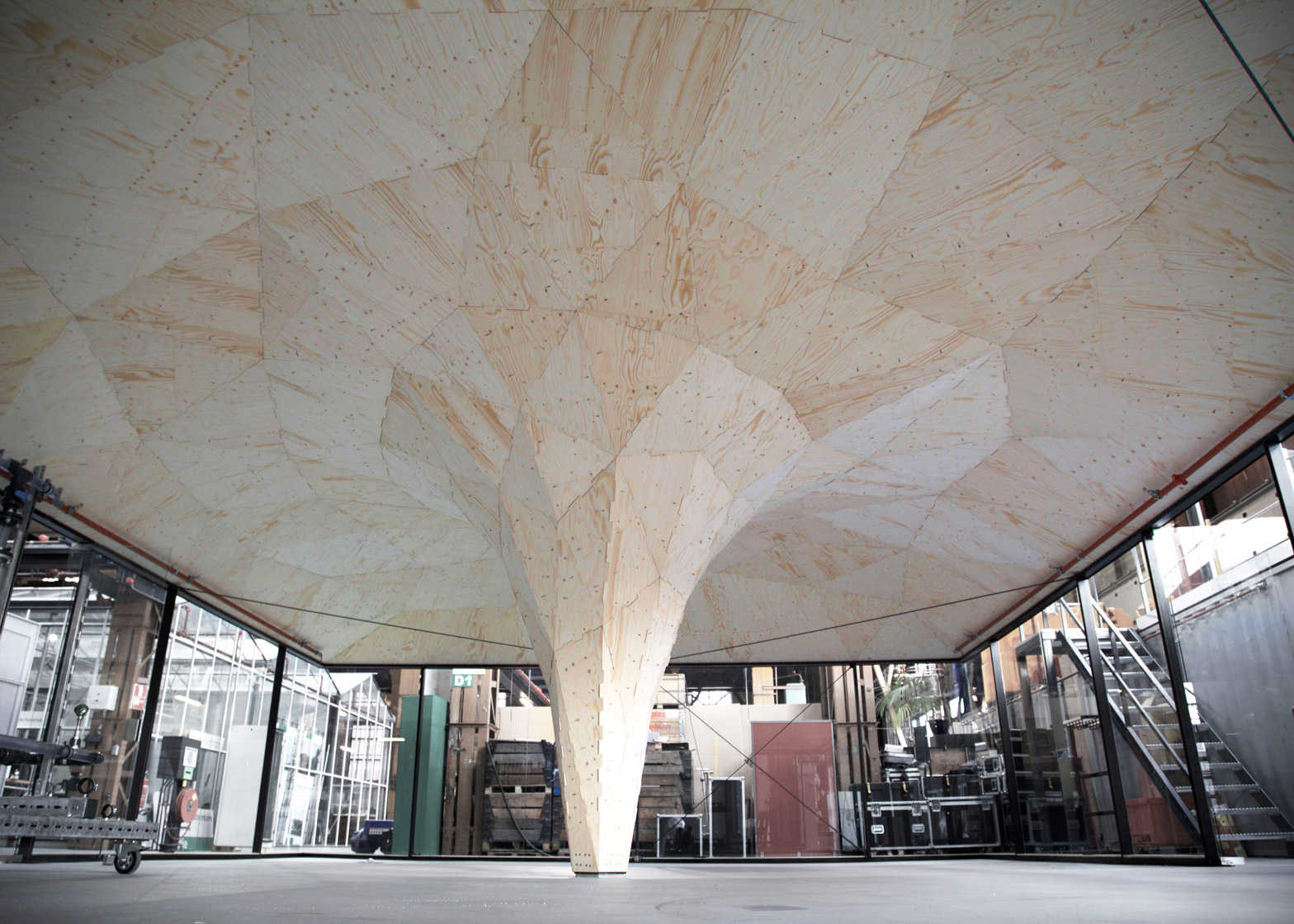Robots are the future of the construction industry, according to architects including Wolf D Prix and BIG's Kai-Uwe Bergmann. We've rounded up a selection of projects that suggest what the robot-made buildings of the future might look like (+ slideshow).
ICD/ITKE Research Pavilion 2016 at the University of Stuttgart
University of Stuttgart researchers led by architect Achim Menges and engineer Jan Knippers have spent the last few years exploring how robots might work with cutting-edge materials like carbon fibre, bioplastic and laminated wood.
Each year the team constructs a pavilion to show off their latest findings. For this year's edition, a robot stitched together moulded beech plywood components, creating a segmented shell-like structure based on the anatomy of a sea urchin.
Read more about the ICD/ITKE Research Pavilion 2016 »
3D-printed Steel Bridge by MX3D
Technology startup MX3D is developing an ornate metal bridge for Amsterdam that will be 3D printed by robotic arms.
The robots will rotate their arms along six different planes of movement, creating a load-bearing structure that will support their own weight as they work. Studio co-founder Joris Laarman believes the technology could create "endless" different structures.
Read more about 3D-printed Steel Bridge »
Rock Print by Gramazio Kohler Research and the Self-Assembly Lab
One of the highlights of the inaugural Chicago Architectural Biennial was this towering architectural structure, built by a robotic arm using nothing but gravel and thread.
Created by Gramazio Kohler Research at ETH Zurich, Switzerland, and the Self-Assembly Lab at MIT, USA, the four-metre-high installation shows how robots might be used to create structures that require no adhesive.
Woodchip Barn by AA Design and Make
London's Architectural Association hosts a design and build course every summer in a Dorset wood, but this year students used robotics for the first time. The result is a barn featuring an arched roof-truss structure.
Using timber harvested from the surrounding trees, a robotic arm milled and shaped components so they could be joined without costly custom-fabricated steel components.
Read more about Woodchip Barn »
ICD Aggregate Pavilion 2015 at the University of Stuttgart
As well as the annual University of Stuttgart pavilion, last year Achim Menges' Institute for Computational Design also created a structure made up of 30,000 spiky components.
A robot was programmed to drop clusters of the recycled-plastic pieces in specific areas, creating vertical structures that gripped one another when stacked.
Read more about the ICD Aggregate Pavilion 2015 »
ICD/ITKE Research Pavilion 2014 at the University of Stuttgart
The relationship between robots and carbon fibre has been another important study for the University of Stuttgart team. In 2014, Menges and Knippers worked with students to build a web-like pavilion based on the lightweight shell of a beetle.
Using a custom-built robotic system, they created a series of fibre-composite components that cover an area of 50 square metres, but together weigh just 593 kilograms.
Read more about the ICD/ITKE Research Pavilion 2014 »
Flight Assembled Architecture by Gramazio Kohler Architects, Raffaello D'Andrea and ETH Zürich
Before experimenting with gravel and thread, Gramazio Kohler programmed a fleet of drones to lift and stack thousands of polystyrene bricks, creating a series of towers at the FRAC Centre in Orléans, France.
The team believe these robotic devices might be used to construct actual buildings in the future.
Read more about Flight Assembled Architecture »
The Gramazio Kohler team has also investigated the possibilities of using drones to create lightweight architecture, by weaving simple tensile structures in the air.
The research is still in its early stages, but the architects think the technology might be used in the future to build a temporary structures over canyon or rivers.
Read more about Building Tensile Structures with Flying Machines »
Stone Spray Robot by Anna Kulik, Inder Shergill and Petr Novikov
Students from Barcelona's Institute for Advanced Architecture of Catalonia combined a robotic system with a 3D printer to create a device that can build architectural structures from sand or soil.
The Stone Spray robot sprays the grains of sand or soil out of one nozzle and glue out of another to make a mixture that solidifies as it hits a surface.
Read more about Stone Spray Robot »
SkilledIn Office by Studio RAP
Rotterdam-based Studio RAP used a robot to construct a 130-square-metre building inside a former industrial machine hall.
The designers worked with RhinoVAULT – a plug-in for 3D-modelling programme Rhino – to develop an efficient wooden structure made up of 225 unique wooden panels, which were robotically milled before being assembled.
Read more about SkilledIn Office »

